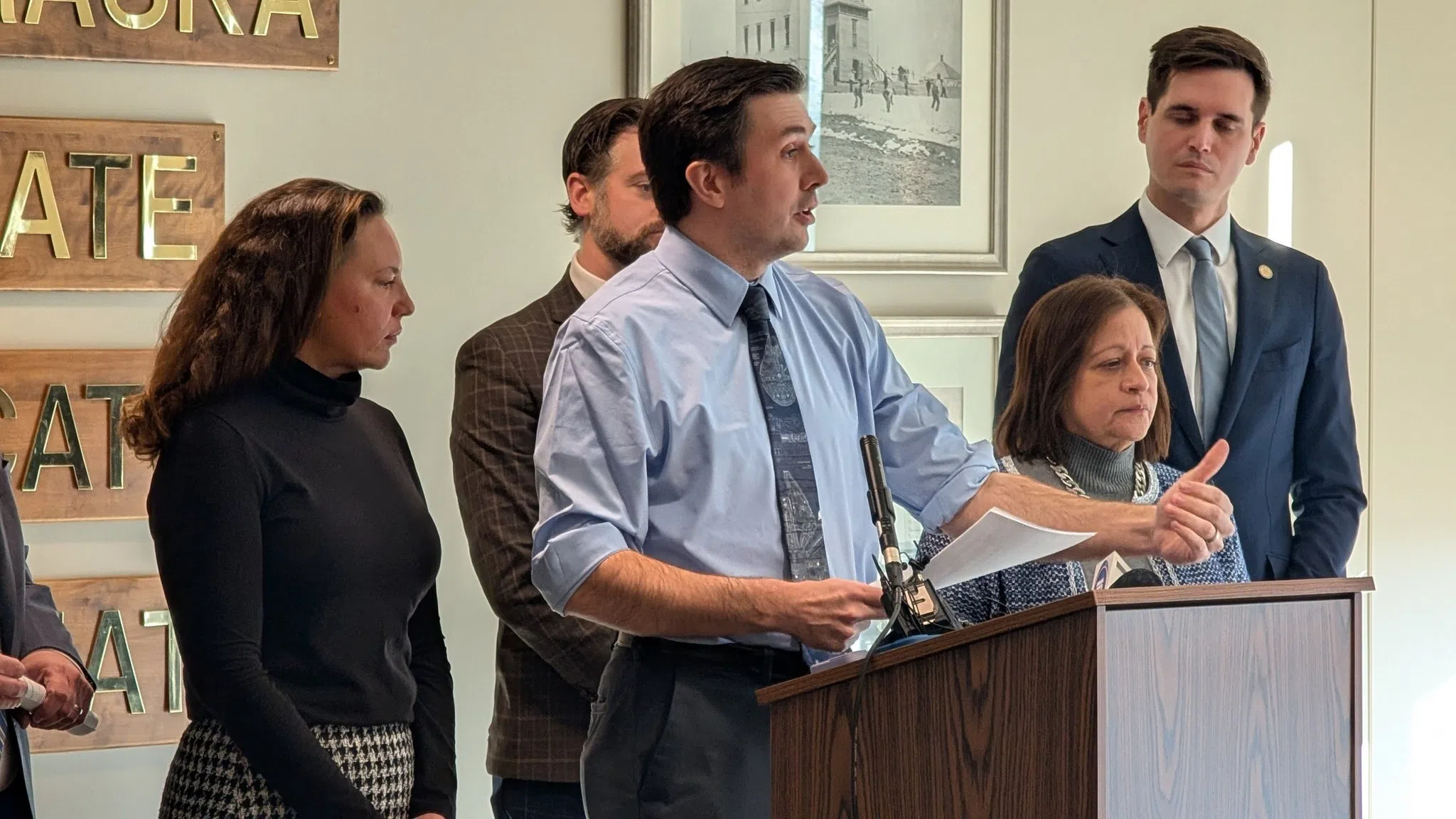Before the U.S. Supreme Court’s decision Monday allowing the Trump administration to resume layoffs for nearly 1,400 Department of Education workers, the state’s largest teachers union says the effects of the president’s austerity measures have already hit home.
Tim Royers, President of the Nebraska State Education Association (NSEA), which represents 28,000 public school workers, spoke with KLIN News on Tuesday and criticized the high court’s decision, calling it a “green light” for Trump to “gut” the federal department as he promised on the campaign trail last year.
“While it might technically still exist, he’s going to gut it down to the foundations so that there’s nothing left, and it exists—functionally—in name only,” Royers said.
The court’s decision comes after U.S. District Court Judge Myong J. Joun issued a preliminary injunction in May, blocking Trump and U.S. Education Secretary Linda McMahon from carrying out an executive order which called for the closure of the Education Department. In March, those 1,400 employees were told they would be laid off, which prompted the injunction, as Joun wrote: “A department without enough employees to perform statutorily mandated functions is not a department at all.”
The U.S. Court of Appeals for the First Circuit affirmed Joun’s reasoning in June, asserting that significant cuts to staff would make it “effectively impossible” for the DOE to fulfill its statutory functions.
The Trump administration disputed this characterization, with Solicitor General D. John Sauer arguing to the Supreme Court that cuts to staff will simply “streamline” the department, and therefore is within the executive’s purview. Sauer acknowledged that only an act of Congress could eliminate the DOE.
That argument was apparently persuasive to the 6-3 conservative majority court, which did not explain its decision. But Justice Sonia Sotomayor called the decision “indefensible” in her dissenting opinion.
But Royers sees this ruling as a “one-two devastating punch to public education.” The first blow, in his view, came a few weeks back when the Trump administration notified states that it was withholding over $6 billion in previously approved federal education grants to schools.
“The reason why this is going to have such a profound impact, is because even if we somehow get those funds restored, the DOE won’t have the necessary staff to ensure those funds are properly issued to the schools and programs that serve kids,” said Royers.
Further, Royers says many of the planned layoffs will strip the agency of “watchdogs for public education in this country.”
“The ones that make sure everybody’s playing by the rules and treating students the way they should be treated. So if you’re a parent and you have a child that receives special education services, for example, if you don’t think that your school is providing the services your child legally deserves, it’s the federal department of education that you go to. It’s their staff that investigate whether your rights have been violated,” he described.
Royers agreed with the U.S. Appeals Court’s assertion that, without adequate staffing, DOE functions would be “impossible” to carry out.
“There is no functional way that the department could exist if they do these firings, which again is the entire point behind this move,” Royers said. “Even if the lower courts ultimately decide in our favor, by then, it’s going to be too late. Those workers will likely have found new jobs… and who would want to come back to a department that may again try to eliminate their positions?”
Royers says some school programs in Nebraska have already felt the pinch, mentioning an afterschool program in Valentine, Nebraska—the hometown of U.S. Senator Deb Fischer—which shut down after failing to get a grant renewed.
“It’s not even a hypothetical,” Royers said, alluding to other programs which have uncertain futures. “The uncertainty of these federal resources means districts are going to have to preemptively close programs down and eliminate positions. They’re not going to try to run those programs for fear of being stuck with the bill, and not having the state or local resources to pay for them.”
Nebraska’s infamous reliance on local property taxes to fund schools will also create unique problems for the state, as “there’s no backup plan to make up for the loss of federal resources,” Royers said. “It’s just going to mean program cuts.”
This development adds a new wrinkle to Governor Jim Pillen’s floated proposal for the state to foot more of the bill for public education. But Royers says it’s not so simple.
“Our State Department of Education was built knowing that the Federal DOE handles other functions when it comes to oversight and education… So a new commission tasked with reworking school funding is going to come to the same conclusions that we’ve had for years: We need to allocate more resources at the state level. But the Governor is refusing to consider other sources of revenue to generate those resources at the state level,” he said.
Going forward, NSEA members will be working on building relationships with state and federal lawmakers in hopes they might “stand up” for public schooling.
“That happens by getting our members to use their voices and communicate how this is impacting their community directly… that becomes a lot harder to ignore,” Royers said. “The public needs to stand up and speak out as well. No one is coming to save us. There is no plan-B if we lose these resources and these programs. If anyone listening cares about before-and-after school programs for kids, reading and math intervention, and proper special education services, they need to speak up now. Not wait a few months, and then wonder, ‘What happened?'”


